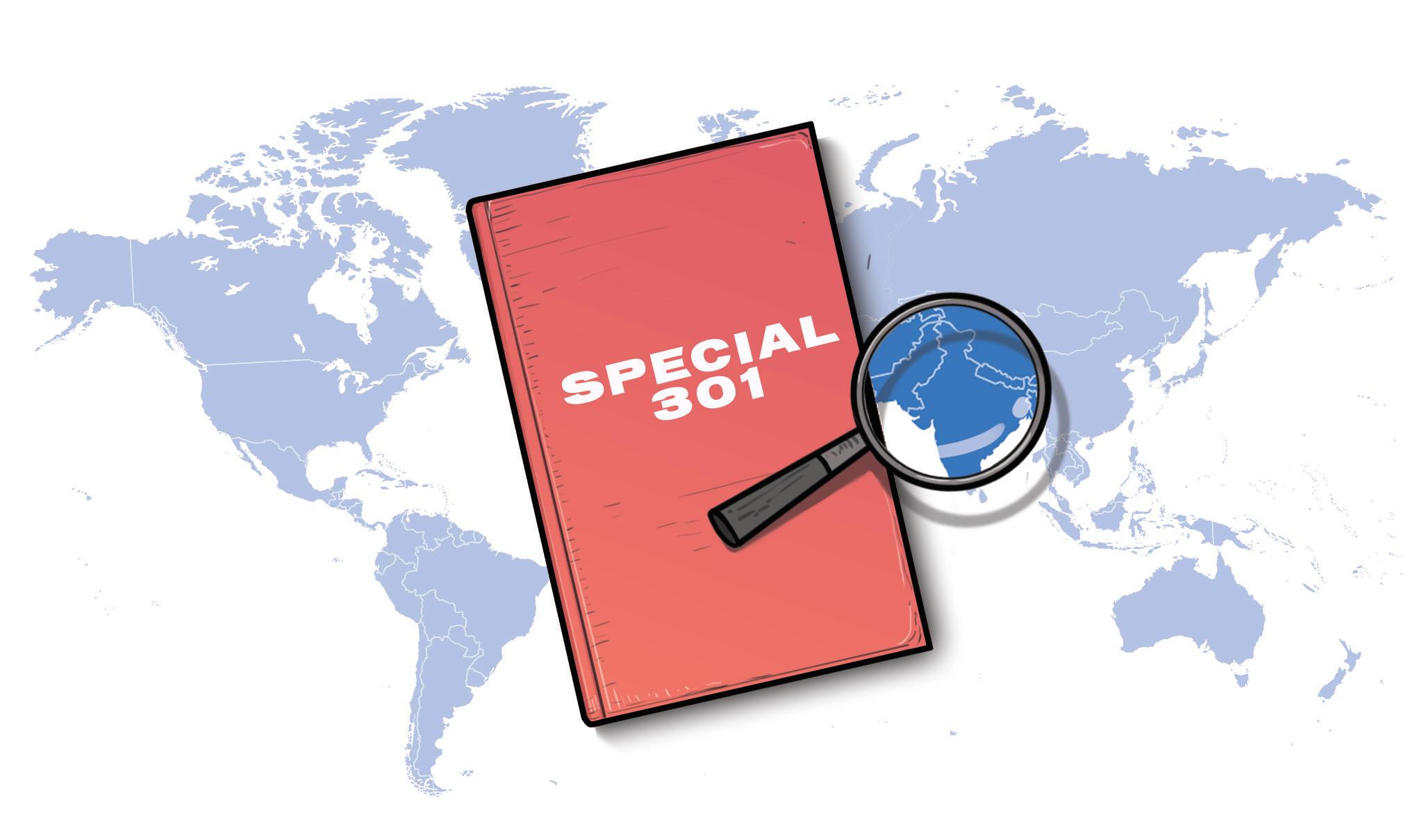Essayer OR - Gratuit
Lethal hypocrisy of US Special 301 Report
Down To Earth
|June 01, 2023
Patent protection in the US is a convoluted and expensive business and yet it pulls up other countries that have robust systems

FOR INTIMIDATION, unabashed hypocrisy and disregard of inconvenient facts, the latest "Special 301 Report" brought out by the office of the US Trade Representative (USTR) continues to take the honours. The 2023 report is all of a piece with those of the previous years; its content, language and analysis not differing much for well over a decade. And India continues to be on its "Priority Watch" list, as it has been since at least 2007.
The "Special 301 Report" looks at the laws on intellectual property (IP) rights in over 100 countries that the US trades with, and assesses the "adequacy and effectiveness" of these regulations in protecting and enforcing IP rights. The yardstick USTR uses is its own-not any globally mandated agreement such as the World Trade Organization (WTO)'s Agreement on Trade-Related Aspects of Intellectual Property Rights (TRIPS) but Washington's perception of how systems in different countries affect its trade interests. The "Priority Watch" list is USTR's category for those countries that present the most serious concerns in this regard.
What does the 2023 report say about India? That it "remains one of the world's most challenging major economies with respect to protection and enforcement of IP", with patent issues continuing to be of particular concern. Why so? Because of "the potential threat of patent revocations, lack of presumption of patent validity, and the narrow patentability criteria which impacts US companies across different sectors." It also complains that patent applicants continue to confront costly and time-consuming pre-grant and post-grant oppositions, long waiting periods to be granted patents and excessive reporting requirements.
Cette histoire est tirée de l'édition June 01, 2023 de Down To Earth.
Abonnez-vous à Magzter GOLD pour accéder à des milliers d'histoires premium sélectionnées et à plus de 9 000 magazines et journaux.
Déjà abonné ? Se connecter
PLUS D'HISTOIRES DE Down To Earth

Down To Earth
SAJANA SAJEEVAN - CRICKETER
In April 2024, Sajana Sajeevan got her maiden call up to the national women's cricket team on the back of a 12-year domestic career that began in the paddy fields of Wayanad, Kerala.
4 mins
January 01, 2026

Down To Earth
JINALI MODY - ENTREPRENEUR
In September 2025, UN Environment Programme announced Mumbai-based Jinali Mody, founder of material-science startup Banofi Leather, as a Young Champion of the Earth.
2 mins
January 01, 2026

Down To Earth
IT'S AN ENDLESS BATTLE
A decade spent tackling waste still feels vanishingly small
2 mins
January 01, 2026

Down To Earth
'NUMB, AND UNABLE TO ACT
As disasters grow more frequent, I find myself wondering how long I can continue living here, waiting for the next storm
2 mins
January 01, 2026

Down To Earth
NILA MADHAB PANDA - FILMMAKER
Few storytellers bring dramatic despair of ecological loss to the big screen like Nila Madhab Panda. The national-award winning filmmaker often makes nature his central character, be it in his 2017 film Kadvi Hawa or in the 2023 web series The Jengaburu Curse.
4 mins
January 01, 2026

Down To Earth
CHETAN SINGH SOLANKI: SCIENTIST | SOCIAL ENTREPRENEUR
For the past five years, Chetan Singh Solanki has been on a singular journey.
2 mins
January 01, 2026

Down To Earth
ʻLIVING SLOWLY, RELUCTANTLY
The pleasures and burdens of attempting a sustainable life in a fast-moving world
2 mins
January 01, 2026

Down To Earth
KIRAN RAO
Filmmaker and producer Kiran Rao has mastered the art of mainstreaming social commentary, as seen in her early films like Dhobi Ghat and more recently in Laapataa Ladies and Humans in the Loop.
4 mins
January 01, 2026

Down To Earth
I SEE THE RISE OF DEFENDERS
When a species disappears from a land, the loss extends far beyond the species itself.
2 mins
January 01, 2026

Down To Earth
MANISH MEHROTRA - CHEF | RESTAURATEUR
Manish Mehrotra is globally recognised for his innovative approach to preserving India's culinary heritage.
4 mins
January 01, 2026
Translate
Change font size
